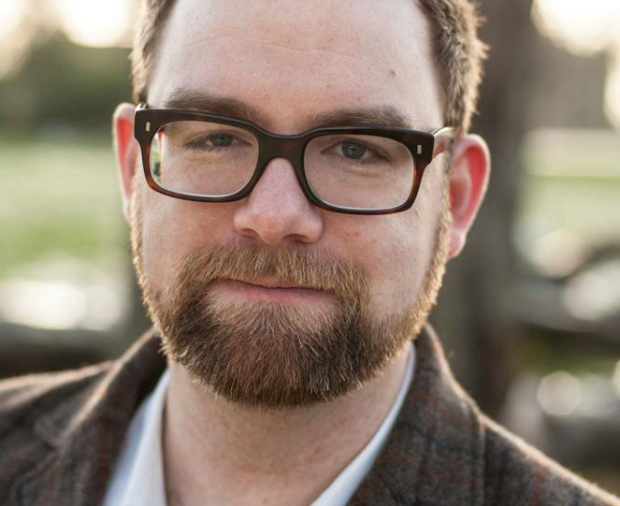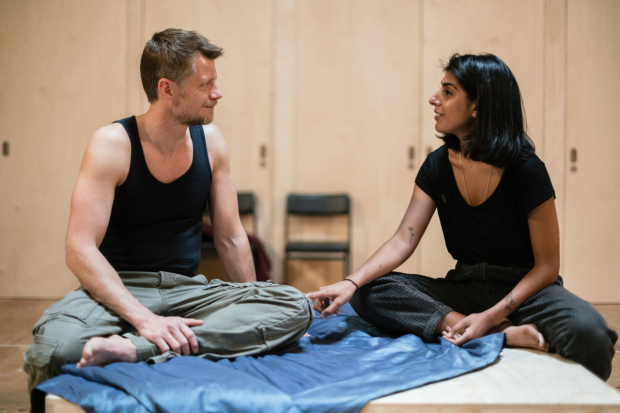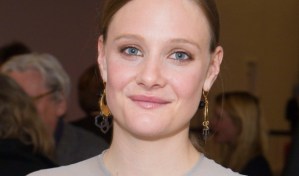Tom Morton-Smith: 'I don't know if I handled the success of Oppenheimer very well'
The playwright on his new play, the success of ”Oppenheimer” and why he’s writing another play about physics

Tom Morton-Smith‘s first play, Salt Meets Wound, debuted in 2007 at new writing venue Theatre503. Since that point he has written for places including the Finborough Theatre and Latitude Festival before winding up at the Royal Shakespeare Company. It was there, in 2015, where his play about J Robert Oppenheimer – the American atomic bomb physicist – became one of the biggest hit plays of the year, if not the decade. In Oppenheimer, Morton-Smith managed to condense the story of the life of the controversial scientist into one play whilst also covering particle physics and the history of communism in America along the way. The piece was dubbed as ‘outstanding’ and marked Morton-Smith out as one of the best playwrights of the moment. He’s now back at the RSC, this time with a play running as part of the Mischief Festival. The Earthworks isn’t, he says, as science-focused as Oppenheimer was, but it does happen to feature the Large Hadron Collider. Here he explains.
So with The Earthworks, you’re back on familiar physics territory…
I can’t help myself really. It wasn’t my intention to follow up Oppenheimer with another science play, but that is just how it’s been. But actually it’s quite different to Oppenheimer in that it’s not the big political sweeping, large scale history play it’s much more of a personal character piece. The Large Hadron Collider serves as a backdrop to the human story that comes out of it.
It’s also a bit shorter?
Yes, it’s not a three plus hour epic. I can rein myself in.
Have you always had a connection with science? Or has it been a bit random that you write about it?
It’s whatever happens to be fascinating me at the time. I don’t have a scientific background but I do like to look at the way that the world and people work. I wrote one play about an organ transplant, which just came from the idea of having a character who has had their heart replaced. Suddenly I found myself down a research rabbit hole.
How did the Large Hadron Collider come to be part of The Earthworks?
It was originally commissioned as a short play and the brief was to write something set on the day that the Large Hadron Collider was turned on. It went to a few festivals but it’s expanded quite a lot since then. The play is really about matter: why things have weight, what is mass. I think there is an interesting metaphor there about the things that we carry with us.
As you weren’t from a science background, was the research aspect of Oppenheimer, and The Earthworks, a lot of work?
The tricky thing with the research for Oppenheimer was that it had to be period specific research. So I had to find out about physics in the '30s and '40s. The more modern physics ideas, which I wouldn’t have been able to use, have filtered into The Earthworks. I was working on it as I was working on a rewrite of Oppenheimer. They are sort of related but distantly.
So if The Earthworks isn’t really about the LHC, what is it about?
It’s about two strangers who meet, one’s a journalist, one's a scientist. It’s basically an excuse to have these two characters explore ideas of weight and loss and grief. It’s got some laughs in, I hope, but it is quite sad.

© Topher McGrillis
Was it hard to start on a play after the success and madness of Oppenheimer?
It had already existed in a short form, but when I was writing Oppenheimer, I was working full time in my day job. So once that play had transferred to the West End I could concentrate on writing. I had to start several projects all from scratch all at the same time but I had been toying with this one already, so it was a bit closer to being ready than the others are.
How did you feel when Oppenheimer became such a hit?
I don’t think anyone writes a play of that size and length, about the history of communism in America and particle physics, and expects that level of success. It’s not exactly traditional West End fodder. I was just hoping to get out of Stratford without receiving too much of a bloody nose. It was a very odd period of my life: suddenly I went from messing about on the fringe and doing work I was very proud of but not managing to get people into see, to seeing my name on posters on the underground. I don’t know if I handled it very well.
Is there something physics-y from The Earthworks that will blow our minds?
One of the things we talk about in The Earthworks is how to slow light down. That came out of experiments in the late '90s and early '00s. Light travels at 186,000 miles per second, and there were these experiments in Harvard where they fired light through a substance that they had super cooled and made super dense in a vacuum and bought the speed of light down to 38 miles per hour. A couple of years later they did the same thing and brought light to a stop.
That is crazy. Why did they do that?
There are practical purposes – what it means for information storage and quantum computing – but they didn’t necessarily know that when they started.
The Earthworks runs with Myth as part of Mischief Festival at The Other Place in Stratford-upon-Avon until 2 June.













